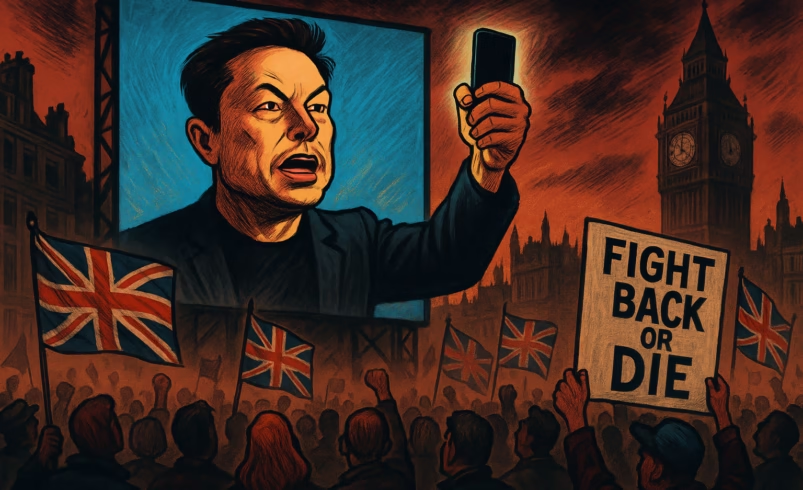Elon Musk sparks UK storm over immigration and free speech
- September 15, 2025
- 0

Elon Musk has once again placed himself at the center of a heated political storm, this time in the United Kingdom. By weighing in on some of Britain’s most divisive debates—immigration, grooming gangs, and free speech—Musk has ignited a conversation that stretches far beyond technology or business. His interventions have not gone unnoticed, particularly as they echo tactics often associated with disruptive political figures elsewhere.
Musk’s comments have landed in a country already grappling with deep divisions over immigration and cultural identity. The entrepreneur has highlighted issues that strike at the heart of Britain’s social fabric, amplifying voices and controversies that many consider fringe but which resonate strongly with certain segments of the public. His approach has been compared to his earlier online battles with financial short-sellers—provocative, relentless, and designed to spark reaction.
Immigration remains one of the most sensitive issues in British politics. Musk has tapped into this tension by drawing attention to debates surrounding grooming gangs and border control. These subjects have long been flashpoints within the UK, often fueling polarizing arguments about national identity, integration, and security. By spotlighting them on his global platform, Musk has magnified domestic disputes for an international audience.
Another central theme in Musk’s intervention is free speech. He has consistently positioned himself as a defender of open expression online, often challenging restrictions he views as censorship. In the UK context, this stance intersects with ongoing discussions about hate speech laws and the responsibilities of social media platforms. Critics argue that amplifying extreme voices under the banner of free expression risks normalizing harmful rhetoric, while supporters see it as a necessary pushback against government overreach.
Musk’s engagement with figures such as Tommy Robinson adds another layer to the controversy. Robinson is a polarizing name in British public life, associated with anti-immigration activism and frequent clashes with authorities. By engaging with or referencing such figures, Musk positions himself not merely as an observer but as an active participant in debates that many consider toxic or destabilizing for social cohesion in Britain.
Observers have drawn parallels between Musk’s tactics in Britain and strategies used by political disruptors in the United States. The idea of “pulling a Trump”—leveraging outrage politics to galvanize support—is often raised when analyzing his approach. However, analysts note that Britain’s political culture differs significantly from America’s, making it far less likely for such tactics to achieve similar success on British soil. The UK’s legal frameworks around speech and its parliamentary system create barriers that limit how far chaos-driven strategies can go.
Musk’s interventions highlight how global figures can influence national debates far from their own borders by harnessing digital platforms and provocative messaging. Whether his involvement will leave lasting effects on British politics remains uncertain, but what is clear is that his ability to stir controversy shows no sign of slowing down. For now, Britain finds itself caught between its own internal struggles and the disruptive energy of one of the world’s most outspoken entrepreneurs.